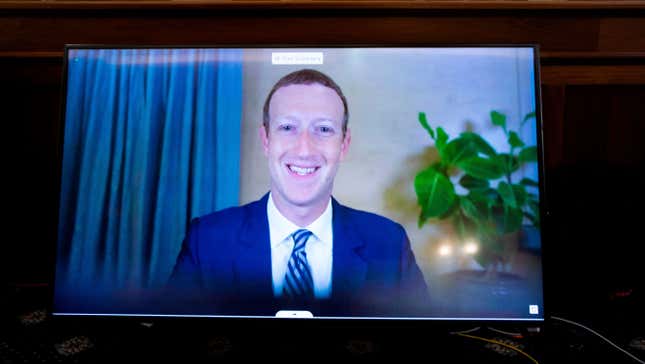
Attention, haters: you have officially been put on notice by Facebook’s VP of Global Affairs Nick Clegg.
This morning, Clegg unleashed a very salty, very strongly-worded rebuke to sordid charges propagated by publishers supposedly looking for a cash grab. It’s titled “The Real Story of What Happened With News on Facebook in Australia,” and reads like a closing argument in a courtroom drama—in this case, essentially accusing Australian lawmakers of allowing the media industry to pick Facebook’s pocket through a proposed law which would compel the company to pay for journalism. While I reject every assertion in this blog post, it’s nice to finally get a human on the line—rather that the unbroken chain of prerecorded denialism and we’ll-get-back-to-yous from Facebook which rarely relate in any way to criticisms at hand.
Here’s the reported version of the Story of What Happened With News on Facebook in Australia: Australian lawmakers have been wrapping up some new legislation (the News Media Bargaining Code). Specifically, it gives Australian news businesses the power to bargain over a rate which Facebook and Google would have to pay in exchange for hosting news articles in full, as excerpts, or in link form. Facebook did not care for this plan and retaliated by pulling all news links shared by publishers and users from its site in Australia. (Clegg said that Facebook had to do so to protect itself from liability.)
But many also noted that this kind of proved the point that Facebook wields way too much power over news access online. Yesterday, the company flipped the news switch back on after lawmakers agreed to a handful of amendments. They would give Facebook and Google a month’s notice before enforcement and potentially exempt Facebook entirely if it proves that it already pays Australian media companies through alternative deals. (Google, on the other hand, struck a deal with NewsCorp to share some ad revenue and create a subscription service. Google already pays some participating publishers to give readers free access to paywalled articles in its News Showcase product. Facebook reportedly pays a select number of outlets to present their full stories in its News Tab.)
In a blog post yesterday, Facebook said it was “pleased” with the agreement, but Clegg saved a few choice words for (presumably) legislators and journalists. Claiming that the Australian lawmakers were deluded by “a fundamental misunderstanding” of how news on Facebook works, Clegg argued that Facebook actually provides news outlets a free marketing service. More to the point, what you’ve heard are lies [emphasis theirs]:
The assertions — repeated widely in recent days — that Facebook steals or takes original journalism for its own benefit always were and remain false.
Okay, depends on your vantage point. Moreover, that wasn’t really the lesson from the past week. We just learned that Australians like getting their news from Facebook.
Clegg could have left it there, but he decided to let it rip:
Of course, the internet has been disruptive for the news industry. Anyone with a connection can start a website or write a blog post; not everyone can start a newspaper. When ads started moving from print to digital, the economics of news changed, and the industry was forced to adapt. Some have made this transition to the online world successfully, while others have struggled to adapt. It is understandable that some media conglomerates see Facebook as a potential source of money to make up for their losses, but does that mean they should be able to demand a blank check?
I’m guessing the money-grubbing failures to which Clegg refers include the dying local papers that have struggled to adapt in part specifically because they’re losing out on locally-targeted advertising revenue which is now almost entirely pocketed by Google and Facebook. Anyway, okay, we get it! Not done yet [emphasis, again, Clegg’s]:
It’s like forcing car makers to fund radio stations because people might listen to them in the car — and letting the stations set the price. It is ironic that some of the biggest publishers that have long advocated for free markets and voluntary commercial undertakings now appear to be in favor of state sponsored price setting. The events in Australia show the danger of camouflaging a bid for cash subsidies behind distortions about how the internet works.
This is a wildly skewed metaphor; Facebook is less like the car and more like one of two radio stations that get to decide which record labels to promote. That kind of broadcast dominance has directly led to newroom layoffs through (allegedly knowingly misleading) emphasis on video. It’s also algorithmically suppressed outlets now competing for attention with fake and inflammatory sources. For a sense of how much an even playing field matters, the Pew Research Center recently found that 36% of Americans regularly get their news from Facebook. Its influence over the flow of information is so patently obvious that every few years we circle back to insisting that Zuckerberg just admit that he’s running a media organization.
Maybe Australian politicians, in needling Facebook to pay its fair share, finally struck a nerve. Or maybe the thrill of winning a pissing match against a sovereign nation has the company’s executives willing to gloat. Whatever the case may be, I sincerely hope that Facebook keeps the line of honest dialogue open.